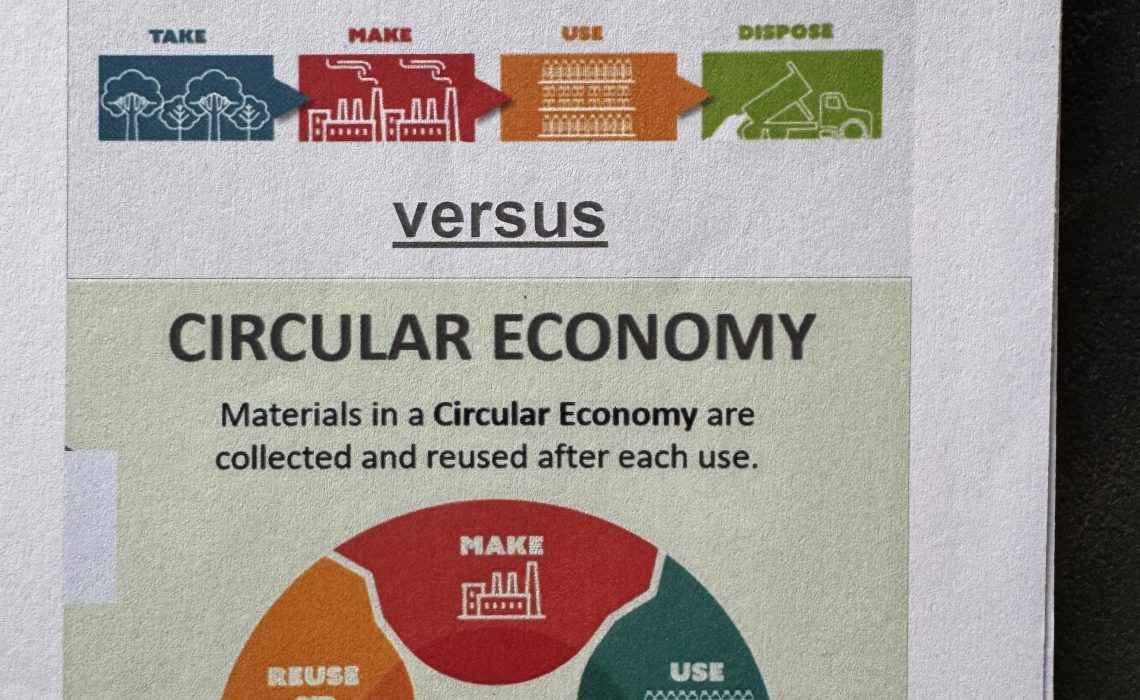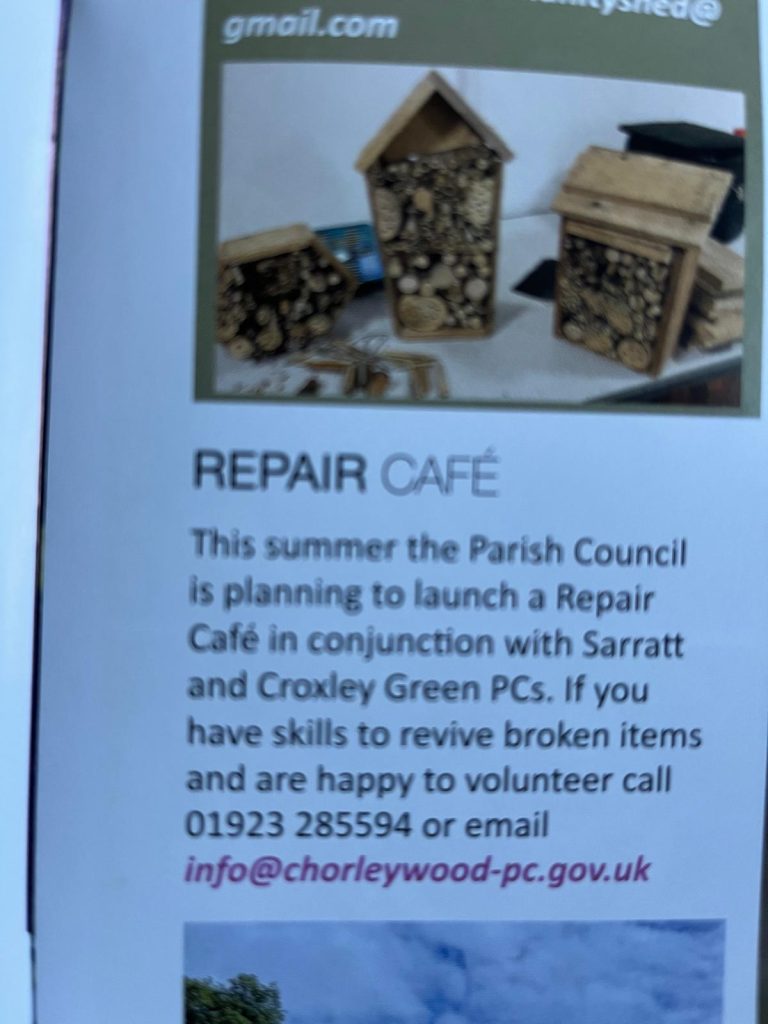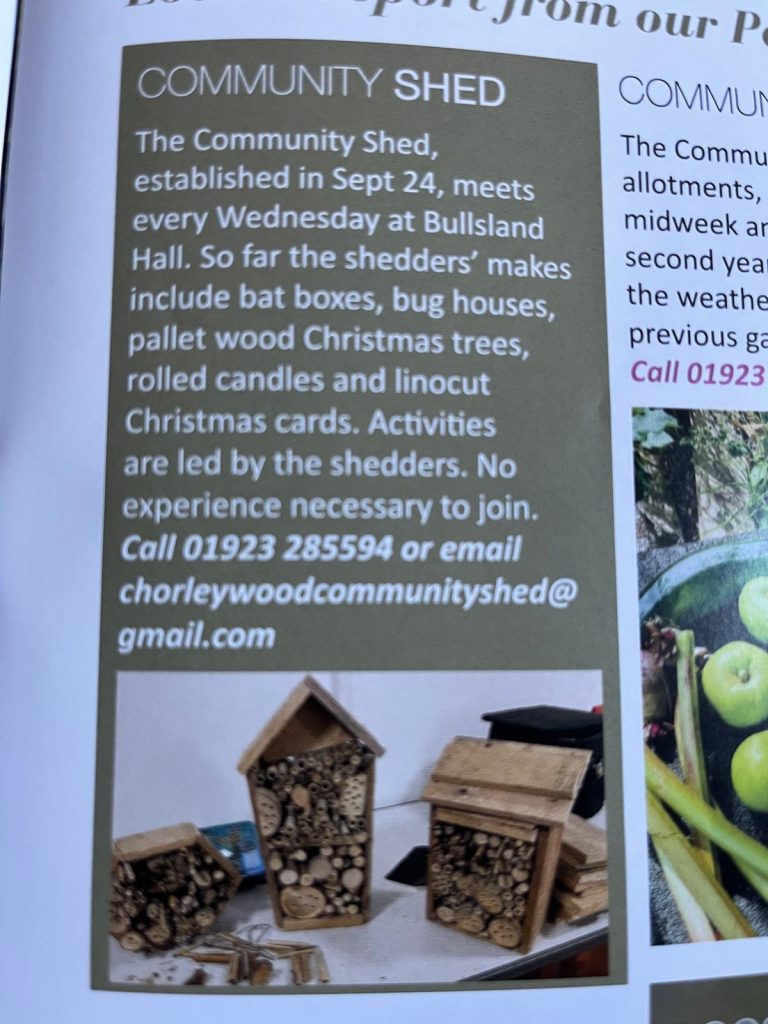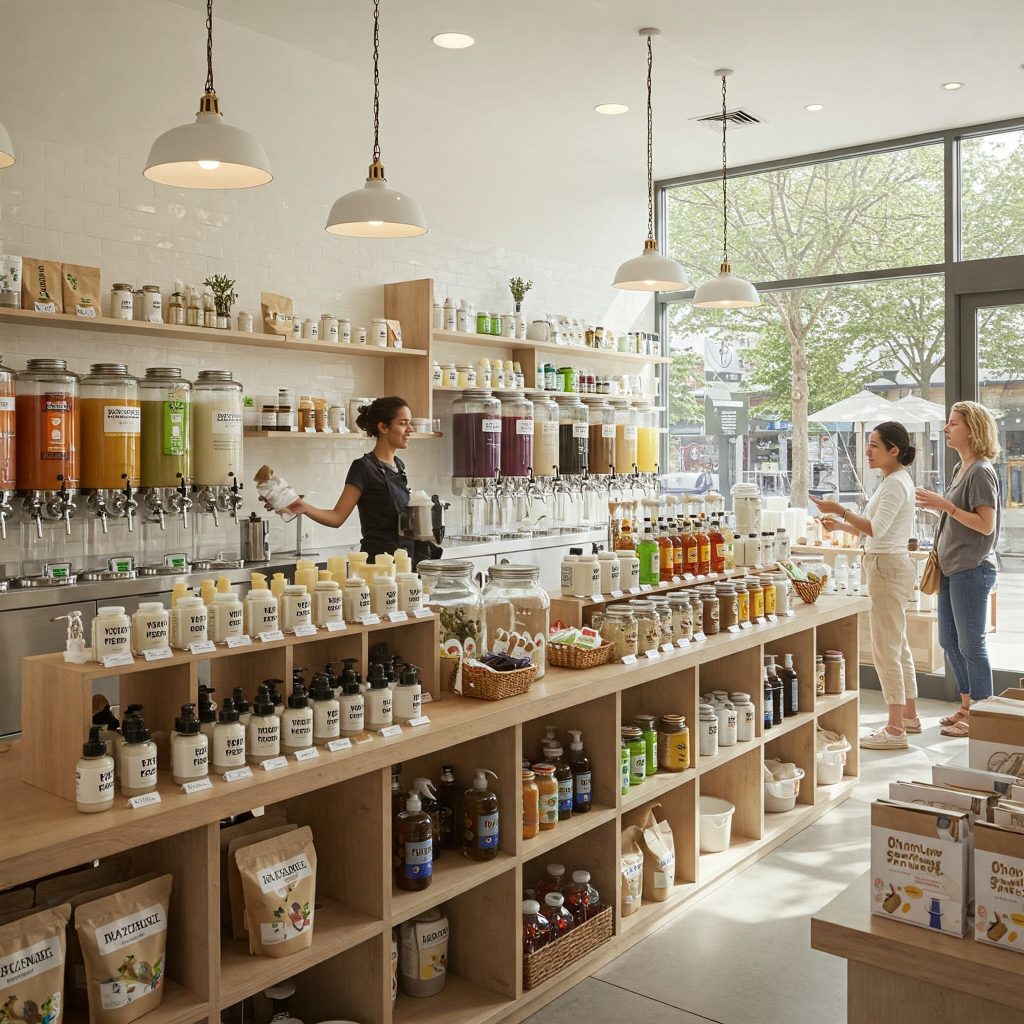
Back with another update from our ongoing Transitions Street journey. This time, we’ve been tackling the “Resource Use” module, and let me tell you, it’s been eye-opening! But what exactly do you mean by ‘resource use’, I can hear you ask?
STUFF!!
Let’s be honest, we’re all surrounded by stuff. Sometimes, it feels like we’re drowning in it! We’re bombarded with adverts telling us we need the latest gadget, the newest clothes, the “must-have” car accessory to be happy. But is it really true?
This module challenged us to rethink our relationship with the things we buy, use, and ultimately, throw away. Here’s what we learnt and our action list …
As many of you know, our street already has a strong sense of community and a shared commitment to reducing waste. We’re big on sharing, asking around before buying new, and generally being mindful of our resources. But this module really pushed us to think deeper and explore new possibilities.
The Linear vs. Circular Economy: A Wake-Up Call
We learned about the “linear economy,” a “take, make, use, waste” system that’s draining our planet’s resources. Shockingly, the UK is consuming as if we had three Earths! While we might think household waste is the biggest culprit (and we do contribute with half a tonne per person per year), the majority comes from businesses and industry – which, let’s face it, is driven by our consumer habits.
Thankfully, there’s a better way: the “circular economy.” Imagine a system where nothing is wasted, where every byproduct is reused, just like in nature. In a circular economy, materials are collected, reused, transformed, and reused again, creating a continuous loop. It’s about moving away from the linear “make, use, waste” model and embracing a more sustainable approach.
Beyond the Three Rs: A New Perspective
We often think of “reduce, reuse, recycle” when we talk about being environmentally friendly. But there’s so much more to it! We discovered a whole range of “Rs” that offer a more holistic approach:
- Rethink: Be mindful of your consumption and your relationship with things and the Earth.
- Refuse: Don’t consume what you don’t need.
- Reduce: Reduce consumption of energy and materials.
- Reuse: Share with others and find new uses for old objects.
- Repair: Fix your objects rather than throwing them away.
- Regift: Share and participate in the gift economy.
- Recover: Recover energy and materials and upcycle.
- Recycle: Only do this if you can’t do any of the other Rs.
This list really made us think! Recycling is important, but it should be a last resort. We need to focus on rethinking our consumption habits and prioritising the other “Rs.”
Making the Most of What We Have:
One of the key takeaways was the importance of maximising what we already own. It’s so easy to fall into the trap of buying new, but we’re challenging ourselves to repair, repurpose, and reimagine. We talked about how some of us are naturally better at this than others, and how we can all learn from each other.
Repair and Renewal:
The rise of repair cafes in our area is incredibly exciting! We discussed the wonderful work being done at the Community Shed, where they’re creating amazing things like Christmas tree decorations from old pallets and building bug boxes. It’s fantastic to see young people getting involved and learning valuable skills.


We also learned about the potential for a new repair cafe nearby, and our parish council is looking at that. We are going to investigate that further!
Refill Revolution:

A big topic of conversation was the wonderful refill shops we have locally, like The Green Store and Sunnyside. These shops offer everything from nuts and seeds to eco-friendly home and body care products, all without the unnecessary packaging. Several of us hadn’t visited yet, so we’re planning a car-sharing trip to make the most of it. It’s a fantastic way to reduce plastic waste and support local businesses.
Beyond the Bin:
We also explored other ways to minimise waste, such as:
- Recycling hard-to-recycle plastics: Our local Co-op takes non-rigid plastics, which is a great option.
- Switching to rechargeable batteries: A small change that can make a big difference.
- Party sharing: Renting reusable party supplies instead of buying disposable ones. This was a new concept for many of us, and we were all impressed by the idea!

Every Click Counts: Fueling a Greener Future, One Story at a Time. Our planet whispers a plea for change, every day. Every small step we take – from reusable bags to conscious consumption – ripples outwards, creating a wave of hope. Let’s rewrite the story of our planet, one click at a time. Join me in making a difference. I believe in the power of storytelling. By sharing inspiring environmental initiatives and practical tips, I aim to amplify the voices making a difference. Imagine a world where everyone is empowered to take action, one small change at a time. Together, we can create that reality. Your support is more than just a donation. By clicking the “Donate” button (top right corner), you become a partner in this mission. Your contribution fuels this platform, allowing me to share even more impactful stories and empower a global community.
Community Initiatives:
Inspired by the repair cafe concept, we discussed the possibility of hosting our own repair event in the summer. My husband and a few others, were volunteered in their absence, haha! But they are keen to share their skills and teach our youngsters how to use tools.
We also talked about organising a community litter pick, followed by a picnic at the local playing field park. It would be a great way to clean up our neighbourhood, spend some quality time together and a simple way to be out with nature.
Clothes Swaps and Composting:
We’re also planning a clothes swap, recognising the environmental impact of fast fashion. Several local schools have already hosted successful swaps, and we’re excited to try it ourselves.
Finally, we discussed composting and the benefits of having our own compost bins, though most of us have been doing that for some time. One of our neighbours has chickens, and some of us have started collecting our vegetable scraps for her!
Looking Ahead:
The Resource Use module has been incredibly inspiring, and we’re excited to put our new knowledge into action. We’re committed to continuing to reduce, reuse, and recycle, and to supporting each other in our efforts. We’re learning to value experiences over things, to appreciate the skills and resources we already have, and to build a more sustainable future together.
What about you? How are you rethinking your relationship with “stuff”? Share your thoughts and ideas in the comments below!
